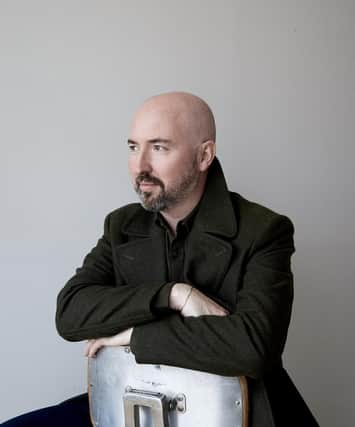Book review: Shuggie Bain, by Douglas Stuart


Shuggie Bain is a first novel, ten years in the writing, already published in the USA and now on the Booker Prize longlist. Douglas Stuart is a Glaswegian, long resident in New York, and his novel draws on his childhood in 1980s Glasgow. It has already been hailed as a masterpiece, almost always a premature judgement. It isn’t that, but it is a very good and often moving novel, which would have been better still with some scrupulous editing, for it’s about a quarter too long. But editors come a poor second to marketing people in publishing today.
It is in many ways a harsh, bleak novel, for that decade was a harsh and bleak time in Glasgow, when the shipyards, engineering works and the coalfields on the city’s fringe were closing, and so many of the working-class were no longer working but living on benefits. Stuart paints the grimmest of pictures, though he has described the novel as “a love-letter to Glasgow.”
Advertisement
Hide AdThere is poverty, squalor and degradation here, much foul language and causal, sometimes brutal sex. What redeems the novel and makes it remarkable is that its central theme is love – a caring, responsible love. Shuggie is the youngest of three children, a gentle, often frightened, effeminate boy; we know from a prologue set when he is 15, living in a bed-sit and working at a takeaway, that he is gay. His childhood has been spent as his mother’s little helper. Agnes is beautiful, romantic, sometimes stylish, a woman of character who is nevertheless on the alcoholic’s long journey to the grave or, rather, the crematorium. The daughter of devout and loving Catholics, she had two children, Catherine and Leek with her first husband before leaving him for Shug, a Protestant taxi-driver, magnetic, stupid, sometimes violent, always unfaithful. He dumps her and the children in a wretched scheme on the fringe of mining country, the bleakest of places, and though he occasionally returns, he is as incapable of helping Agnes as he is selfishly unwilling even to try to do so. Accordingly, when the daughter, Catherine, marries and leaves Scotland and Leek, the other son, a talented artist but deeply troubled, absents himself much of the time, the duty of care devolves to Shuggie, the small boy who fits in nowhere else.
The relationship between Agnes and Shuggie is beautifully, tenderly and understandingly done. Stuart doesn’t sentimentalise it and he hides nothing of the horrors of galloping alcoholism, but there is a gallantry about Agnes which commands respect and admiration, however reluctantly. There are even moments of hope . Led to Alcoholics Anonymous meetings, she takes the message and has a period of sobriety, ended, all too convincingly, when a current boyfriend (another taxi-driver) takes her out for a celebration dinner and tells her that, now that she’s cured, one little drink can do no harm. So it is over to Shuggie and his resourceful and loving efforts to care for Agnes and shield her from shame.In treating of the bond between the mother and the boy, Stuart writes with sympathy and with a tenderness that contrasts sharply with the brutality of much that he presents. It even seems appropriate that Shuggie, though reared in this coarse world, should speak with a certain delicate refinement, rather as Dickens has his boy heroes, Oliver Twist, David Copperfield and Pip speak correct English, Oliver in Fagin’s kitchen, David in the bottle-factory and Pip at the Forge.
One would guess that though this novel took years to write, it had been maturing in Stuart’s memory and imagination even longer. There are of course echoes of other Glasgow writers, Archie Hind, Alan Spence and James Kelman, but it is in no sense derivative. It’s a case of playing off and against the influence of others. There is humour here too, of a dark dry sort, and it’s a novel that deserves, and will surely often get, a second reading. It deserves better proof-reading too. The word “dout” (or “dowt”), meaning a cigarette-end, is repeatedly spelled “doubt” and when a hungover Agnes “retches,” we are told she “wretches.”
Shuggie Bain by Douglas Stuart is published by Picador, 430pp, £14.99. Douglas Stuart is appearing online as part of this year’s Edinburgh International Book Festival on 26 August, www.edbookfest.co.uk
A message from the Editor:
Thank you for reading this story on our website. While I have your attention, I also have an important request to make of you.
The dramatic events of 2020 are having a major impact on many of our advertisers - and consequently the revenue we receive. We are now more reliant than ever on you taking out a digital subscription to support our journalism.
To subscribe to scotsman.com and enjoy unlimited access to Scottish news and information online and on our app, visit https://www.scotsman.com/subscriptions
Joy Yates
Editorial Director